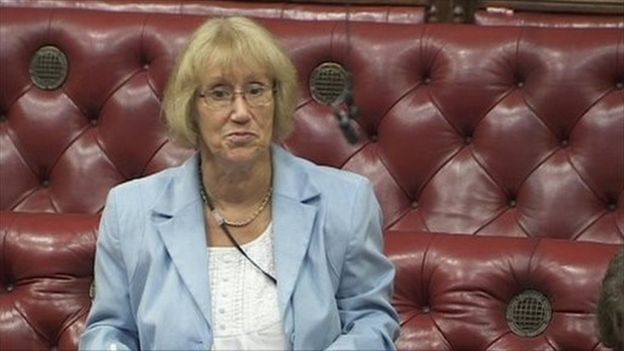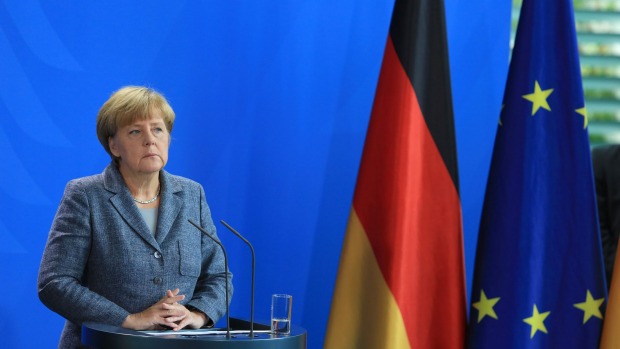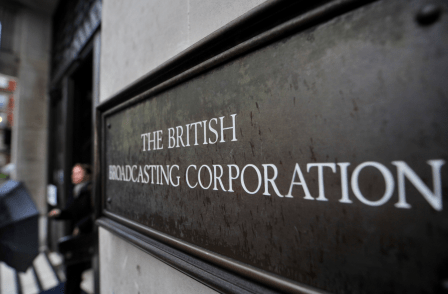
–
Baroness Henig’s exploitation of the Paris Attacks anniversary to advocate new laws demanding that concert venues invest more in security – while herself employed as chair of a private security firm which just so happens to provide these services – showcases British politics at its most tawdry and corrupt
There are innumerable reasons why the House of Lords in its current state is an utterly intolerable affront to democracy and ethical decision-making, but an example from today really takes the biscuit.
We are coming up on the one year anniversary of the heinous coordinated terrorist attack at the Bataclan concert hall and across Paris, and Baroness Ruth Henig – a Labour peer appointed in 2004 – decided that today would be the perfect day to pop up on the BBC News Channel to declare that private concert venues should do more in terms of anti-terrorism security and training, enforced by law through a potential change to the Licencing Act 2003.
From BBC News:
Licensing laws should be changed to force entertainment venues around the UK to undergo counter-terror training, a private security expert has said.
Baroness Ruth Henig told the Victoria Derbyshire programme that some venues did not take such training “seriously”. The former chair of the Security Industry Authority now plans to table an amendment to the 2003 licensing act, to include counter-terror training. Her comments come nearly a year after 130 people died in attacks in Paris.
[..] Baroness Henig said: “There are clearly a number of venues, often the larger venues, I think, but not always, who have airport-style security, who, for example, do have metal detectors, who do have very well-trained security personnel and they top up this training regularly.
“But I think at the other end there is a tail of venues who aren’t taking it seriously, we know this from the police, who don’t co-operate, who don’t take up the offers that are made to them and where I think there are some concerns.
“And the issue is how do you get to that tail of venues who are perhaps not doing as much as they should be about security.”
So far, so noble, you might think. After all, Baroness Henig only recently completed two terms as chair of the Security Industry Authority (SIA), the government regulator for private security firms run under the auspices of the Home Office. Who better to make a reasoned, fact-based case for more necessary security regulation than somebody who was in charge of holding the industry to account?
Only that is no longer Baroness Henig’s role. Rather than regulating the industry and ensuring that professional standards are upheld, Ruth Henig can now be found on the board of SecuriGroup, a private security consultancy and provider itself regulated by the SIA – and not just as any board member, but as the Chair of that organisation.
Here’s her official company bio:
Baroness Henig joined SecuriGroup after completing two successful terms as Chair of the Home Office Regulator, the Security Industry Authority (SIA). Baroness Henig’s commitment to security and policing is well documented having held the post of Chair of Lancashire Police Authority and the Chair of the Association of Police Authorities in England and Wales which led to the award of a CBE in 2000 for services to policing. The Baroness also served on the National Criminal Justice Board and Street Crime Action Group, chaired by the then Prime Minister, Tony Blair.
She was appointed as Deputy Lieutenant for Lancashire in 2002 and made a life peer in 2004 as Baroness Henig of Lancaster. As a Deputy Speaker of the House of Lords, Baroness Henig takes her place on the European Security Committee on Foreign Affairs and is a member of the Independent Policing Commission.
And most conveniently, some of the services offered by SecuriGroup include counter-terrorism strategy training, security guarding, door supervision and event security. One might say that SecuriGroup are perfectly poised to provide the very services that their CEO is currently insisting are made mandatory from her unelected seat within the UK Parliament.
To move instantly from a position regulating an industry to the chairmanship of one of those companies being regulated is concerning in and of itself. In fact, the free flow of individuals back and forth between regulator and regulated organisations is one of the primary symptoms of “regulatory capture,” a phenomenon whereby a government body established to regulate an industry “instead advances the commercial or political concerns of special interest groups that dominate the industry or sector it is charged with regulating”.
In this context, Ruth Henig’s sudden concern that smaller music venues are not stumping up for expensive anti-terrorism security countermeasures starts to look a lot less like high-minded public interest and a lot more like grubby concern for the bottom line. Is Henig worried about “that tail of venues who are perhaps not doing as much as they should be about security” because the safety of concertgoers has been keeping her up at night, or because a valuable revenue stream for SecuriGroup has been going unexploited? Given that she now derives her pay cheque from a private security firm, one has to assume that it is at least partly the latter.
Henig tries to cast herself in a virtuous light by pointing out the fact that the initial police consultations with event venues offered as part of Project Griffin are free. And so they are. But when the risk-averse police advise small venues operating on shoestring budgets that they need to pay for additional private security (by hiring the services of SecuriGroup or its competitors), that certainly will not be free. The sums of money involved would likely shut down or severely restrict the operations of many of Britain’s smaller music venues.
Of course there is nothing surprising about a Labour politician downplaying the cost of regulatory compliance – this is their bread and butter. But to do so because one has a direct financial interest in more stringent regulation is morally grey at best.
And this is one of the main problems with the House of Lords. Henig’s case is far from unique. It is just particularly disgusting, because it involves taking advantage of the anniversary of the terrorist murder of more than a hundred people to help drum up more business for SecuriGroup. But regulatory capture is an inherent feature of an appointed House of Lords, not an awkward and unintended quirk.
When governments appoint people to the upper legislative chamber based often on their industry experience (and that’s a best case scenario, assuming they aren’t simply cronies being rewarded for political services rendered), those people will naturally retain extensive links to the industries in which they built their careers and reputations. Sometimes this can be a good thing and lead to better, more considered lawmaking. But if the legislator in question is still working (or intends to return to work) in that field, then their judgment is inherently compromised.
Unfortunately, rather than realising the glaring conflict of interest and recusing herself from debate on the subject, Baroness Ruth Henig decided instead to roll up her sleeves and abuse her position as an unelected peer to further the interests of the company she runs – and all in the run-up to the anniversary of a terrorist attack which killed 130 innocent people.
Britain is crying out for proper constitutional reform to build up the public’s diminished faith in our democratic process. Part of that means proper reform of the House of Lords – making it a fully elected chamber (with term limits, length of terms and the candidate pool open for discussion, so long as we produce a more deliberative body), ending the “elected dictatorship” of the primacy of the Commons, kicking out the theocratic Lords Spiritual and drastically shrinking the membership.
But it also means cracking down on the kind of morally dubious behaviour exhibited by people like Baroness Ruth Henig. We must end the revolving doors which currently exist between Parliament and industry, Parliament and lobbying and between regulator and regulatee. Somebody who just completed two terms regulating the private security industry should not then immediately be allowed to go and work in that same sector. Just because it is commonplace and seen by the establishment as a “deserved reward” for having previously slummed it on the public purse does not make it right.
Using the anniversary of the November 2015 Paris Attacks to promote a bill making it mandatory for even the smallest of music venues to invest heavily in additional security is politics at its most cynical – particularly when you consider that heavily armed and well trained gunmen such as those who committed the Paris Attacks (and the previous attack on Charlie Hebdo) would hardly be deterred by the presence of additional unarmed security guards.
But promoting an ineffective course of action which also happens to result in significant monetary gain for one’s outside business interests is about as low as it is possible to get. By all account, Baroness Henig’s career thus far has been distinguished and honourable. She should reverse course and either give up her chairmanship of SecuriGroup or otherwise immediately recuse herself from any further part in legislating security issues – or risk tarnishing that good reputation forever.


–
Top Image: BBC
Bottom Images: Pixabay, Twitter / SecuriGroup
–
Support Semi-Partisan Politics with a one-time or recurring donation:
–
Agree with this article? Violently disagree? Scroll down to leave a comment.
Follow Semi-Partisan Politics on Twitter, Facebook and Medium.











